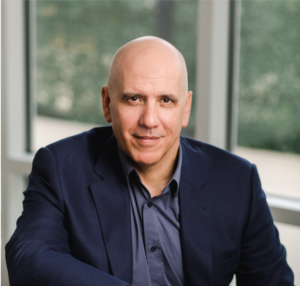Industry conferences are always hit-or-miss events in terms of their value, as they’re fully dependent upon the quality of the panelists, selection and structure of the discussion topics, and the level of audience engagement. The venue can also make or break a conference.
This week’s IREM conference hit the mark on all points and we were very fortunate to spend the day at the New York Academy of Science conference area at 7 World Trade Center with spectacular views all around. Building Engines was pleased to participate as a sponsor, and I certainly appreciated the chance to meet some very smart people as well as contribute on one of the panels…although, that probably negates my earlier point about quality panelists.
The 10 tracks in the day-long meeting included sessions on: Best Practices in Marketing, Leasing, Maintenance, and Operations; Deciphering the Complex Future Tenant; and Innovations in Technology, among others. Additionally, there were two terrific keynote sessions featuring interviews and personal stories from the legendary Francis Greenburger, Founder and CEO of Time Equities, as well as Michael Rudin, VP of Rudin Management.
These were some of the consistently asserted positions I heard from the panelists throughout the day and shared with our team:
• In general, most people think 2014 projects to be a strong year for real estate for most sectors nationally and in NYC.
• Some of the key business drivers include:
- “Live/Work/Play” development in cities driven by tech companies and Gen Y
- Baby Boomers moving, but proximity to quality healthcare driving their decisions
- Changing space needs of the modern tenant impacting development & management
- The demand for sustainability continues for development and existing buildings
- There are some bubble fears, particularly in some hot housing markets – “How many people are left who can afford housing in NYC?”
- CRE still lags way behind other industries in adoption and application of technology, but is starting to make some (slow) advances.
- Mobility is a game changer for operations and management.
- Despite general optimism, there is still a post-crash focus on running lean, operating well, and increasing revenue.
I also jotted down a number of interesting comments from the panelists throughout the day. – These are some of the highlights from those notes:
• Kevin Hoo, VP, Acquisitions & Asset Management, Savanna:
- Always underwrite your entry and exit into an asset (Joseph Giannola, VP, Asset Management, Murray Hill also emphasized the same point.)
- A classic mistake is to be too conservative and under invest when re-positioning an asset.
- Vendors – when you pitch him, make a clear case for how your service/system will add value, make a property and staff more professional, help set a tone for the building.
• Edward LaGrassa, President, Chilton Realty:
- Always bring vendors/partners together with property team when acquiring a property or making a big decision to brainstorm together and create operating best practices as well as opportunities for revenue creation and cost reduction.
- Important to understand the difference between ROI and NOI when making Capex decisions or selecting a service, systems; different time horizons for each and often ROI is not calculable, so you make decisions on other criteria.
• Peter Febo, Chief Operating Officer, Taconic Investment:
- Critically important to standardize processes, operating platforms to help reach investment goals.
- Pay attention to the details – e.g. Insurance requirements to deal with Local Law 240 in NYC
• Susan Curtis, Senior Property Manager, RXR:
- Achieving excellent results from running lean; streamlining operations, rebidding contracts, etc.
• Andrew Hoffman, Chief Operating Officer, Stonehenge:
- Cutting infrastructure and IT related costs by moving lots to the cloud; SalesForce for CRM, Google Platforms, etc.
• Thomas Durels, Executive Vice President, Empire State Realty Trust:
- Definitely seeing density increase as collaborative workspace layouts continue to rise in popularity
- Customer relationship management needs to have a defined process and ownership in order to stay in close touch with tenants; share information, anticipate their needs.
• Brandl Frey, Leasing Manager, The Durst Organization:
- Space utilization changes for tenants like law firms driven by technology; cloud services replacing needs for server rooms, digitized content replacing libraries.
Now, my sense is that much of this is fairly well understood by the majority of sophisticated attendees, but there’s always comfort in hearing some validation of the approach you’re taking or that someone else is struggling with the same thing. And you may pick up a few nuggets that you weren’t aware of in addition to the terrific networking opportunities that these conferences provide – and in this case, made attendance well worth it.
For a look at some of what we covered on the Back to the Future – Innovations in Technology panel (including our client, Jonathan Schultz from Onyx Equities,) please check out the video below.






